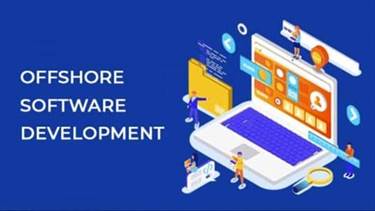What Is Kubernetes? What You Should Know As A Developer By Romaric Philogène
Kubernetes is open supply supplying you with the liberty to benefit from on-premises, hybrid, or public cloud infrastructure, letting you effortlessly move workloads to where it issues to you. Kubernetes permits you to construct your cluster with a mixture of digital machines on the cloud, on-premise, or in your knowledge heart, to match your requirements. Chevas has spent over 15 years inventing brands, designing interfaces, and driving engagement for corporations like Microsoft. He is a practiced author, a productivity app inventor, board recreation designer, and has a builder-mentality drives entrepreneurship. It’s the way ahead for DevOps, and it’s time to hop on board and let this take your development sport to new heights.
With modern web services, users count on functions to be out there 24/7, and developers anticipate to deploy new versions of those purposes several occasions a day. Containerization helps package software to serve these goals, enabling applications to be released and updated with out downtime. Kubernetes helps you make sure those containerized functions run the place and whenever you need, and helps them find the resources and tools they should work. Kubernetes is a production-ready, open source platform designed with Google’s accrued expertise in container orchestration, mixed with best-of-breed ideas from the group. Kubernetes is acknowledged for its steep studying curve, primarily because of the complexity of container orchestration, cluster management, and community configuration. Docker is a tool designed to make it simpler to create, deploy, and run purposes by utilizing containers.
Developers want to put in writing functions that may run across multiple working environments. Traditionally, the performance of these applications depends on a particular infrastructure, such as adherence to cloud provider-specific constructs and back-end storage techniques. It was initially built upon a decade and a half of the Google expertise running production workloads.
Should I Become A Developer (6 Reasons)?
The official Kubernetes website has browser-based hands-on kubernetes fundamental tutorials powered by Katacoda eventualities. Following are the listing of one of the best on-line useful resource to study Kubernetes practically. So when you try to create a Kubernetes Object using Kubectl, it converts the YAML spec to JSON format and sends it to the Pod resource (Pod API endpoint). Before creating an object, you represent it in a YAML or JSON format. Once the item is created, you’ll have the ability to retrieve its details from the Kubernetes API using Kubectl or consumer libraries. Check out the whole Kubeconfig file guide to learn every thing about the Kubeconfig file.

While studying Kubernetes, it is higher to maintain track of the latest Kubernetes releases and new features. I will maintain updating the newest launch information and have list. You also can have a look at official Kubernetes tasks to learn to implement Kubernetes ideas practically. To understand operators, first, you should be taught the following Kubernetes ideas.
Developer Teams Involved In The Cutting Edge
The Kubernetes learning curve may be steep initially, but it turns into simpler to navigate with dedication and apply. It is necessary to start with the fundamentals, such as understanding Kubernetes’s architecture and key components. One of the reasons Python is so popular is its simple and easy-to-read syntax. This makes it a fantastic selection for newbies who’re just beginning out with programming. Even experienced builders appreciate Python’s clear and readable code. It could be slightly simpler to see why enterprises and larger businesses are drawn to what Kubernetes provides.

Building containerized applications opens doors to efficiency and scalability, particularly for builders looking to streamline their workflows. Kubernetes, a game-changer in container orchestration, makes it simpler for builders to manage these purposes. This article will discuss in great detail on what Kubernetes is, why it issues, and the way it simplifies container orchestration, paving the way for robust and flexible applications. We may even undergo some of the incessantly requested questions regarding sensible use of Kubernetes.
Scaling And Updating Purposes
Starting with a fundamental containerized construction can make it easier to transition to Kubernetes when (or if) the time arises. It is less complicated to transition from easy containers to Kubernetes than from a monolithic structure with interwoven processes. There are particular tools for Kubernetes administration which are designed to support the enterprise.
Kubernetes predominantly interacts via kubectl, its command-line device. While command-line proficiency is a standard talent amongst developers, kubectl adds another layer to the training curve. This software requires not simply familiarity with its commands but in addition a deep understanding of their context and the Kubernetes objects they manipulate. At the heart of Kubernetes lies many ideas and terminologies — pods, deployments, services, stateful units, and extra. Diving into this world can be overwhelming for developers already juggling numerous obligations. It’s not nearly grasping a couple of new terms (they are used to); it’s about understanding how these entities work together within the Kubernetes ecosystem.
At the same time, the underlying premise of Kubernetes is to be absolutely customizable. So, you possibly can alter the base perspective (k8s-way) to turn into whatever you want by eradicating and changing the assorted elements that come commonplace on the platform. Some builders love the freedom they should shift the project into their very own likeness and create precisely what they want for his or her utility.

It acts as a network proxy and load balancer for a service on a single employee node and manages the community routing for TCP and UDP packets. It listens to the API server for every service endpoint creation and deletion so for every service endpoint it units up the route so as to attain it. Kubernetes is an open-source Container Management device that automates container deployment, container scaling, descaling, and container load balancing (also referred to as a container orchestration tool).
Who Is Kubernetes For?
Sure, managing clusters can be a bit tricky, but with CI/CD practices and K8s, these workflows are streamlined to the max, supplying you with more development velocity and tighter security. Companies using K8s with tools like Argo are seeing a 70% reduction in deployment occasions. In the world of DevOps, Kubernetes is the actual MVP – it is like the ultimate wingman for managing your containerized apps, making every little thing clean.
- To understand operators, first, you have to be taught the following Kubernetes ideas.
- Diving into this world may be overwhelming for developers already juggling numerous duties.
- Master essentially the most trending DevOps tool, Kubernetes, to help facilitate the process of development-to-deployment.
- As it continues to evolve, Kubernetes is poised to play an much more vital role in shaping the method ahead for technology.
- It enables easier updating and might take an in-depth transition in case you are working with traditional (monolithic) app architecture.
- Kubernetes lets you construct your cluster with a mixture of digital machines on the cloud, on-premise, or in your knowledge heart, to match your requirements.
It has been just six years since Docker was launched but communities have already shifted to it from VMs. Docker is designed to learn both builders and system administrators making it part of many DevOps toolchains. Developers can write code without worrying about the testing and manufacturing setting.
Once these prerequisites are met, learning and implementing Kubernetes turns into much more manageable. And they make the software development lifecycle smoother and more environment friendly. By automating tasks like testing, building, and deploying software program updates, DevOps engineers help speed up the event course of. There are just lots of particulars to iron out earlier than it’s going to work as supposed.
Containers decompose applications into smaller parts and allow quicker improvement by assigning smaller, extra focused teams responsible for particular containers. However, it requires a correct system for integrating and orchestrating each of those smaller decomposed components. Kubernetes makes this possible by introducing Pods, or a group of containers. We’re about to dive into how Kubernetes is altering the DevOps game for actual.

This is type of a game-changer for anyone working in software improvement and operations. Bottom line, Kubernetes is not simply adapting to DevOps wants, it is straight-up shaping the future of cloud tech. If you need to keep on high of your software dev and IT ops sport, investing in K8s experience and tools is a should. That’s not just about pace; it is a cultural shift towards a extra dynamic and responsive strategy to software life cycle administration. In right now’s fast-paced tech world, adopting Kubernetes is becoming a must have in the DevOps toolbox if you need to keep forward of the game. With these powers combined, devs and ops groups can work collectively like a well-oiled machine, even on massive techniques.
The “kubectl” Barrier For Developers
It isn’t precisely user-friendly, since it is created for developers by developers. You might need to have a firm grasp of coding and languages to work inside the framework of Kubernetes. The advantages of Kubernetes extend beyond the event, testing, and manufacturing setting to carry out mission-critical duties in large-scale companies. Kubernetes’ rise in recognition is due to its successful use cases in mission-critical sectors such as banking, edtech, and IT. With increasingly enterprises adopting hybrid cloud methods, there has been numerous challenges in the subject of software improvement.
K8s is a giant a half of cloud computing and will continue to be necessary as companies shift their architecture in a cloud-native course. The data-driven period means apps are more and more important for permitting firms to regulate to shopper demands and interact their audience. Kubernetes offers container orchestration and an easy approach to establish the processes needed to create and handle the app.
By using Kubernetes, we will simplify the management of our containerized applications, scale back downtime, and improve the reliability and scalability of our techniques. Ultimately, Kubernetes permits us to focus on delivering value to our customers rather than spending time managing infrastructure. Larger firms global cloud team may think they have the assets wanted to construct their very own infrastructure and adapt resources manually. With a bigger tech team, you probably do have extra manpower that might be devoted to writing and manipulating your application structure.
